Israel passes controversial law on West Bank settlements
- Published
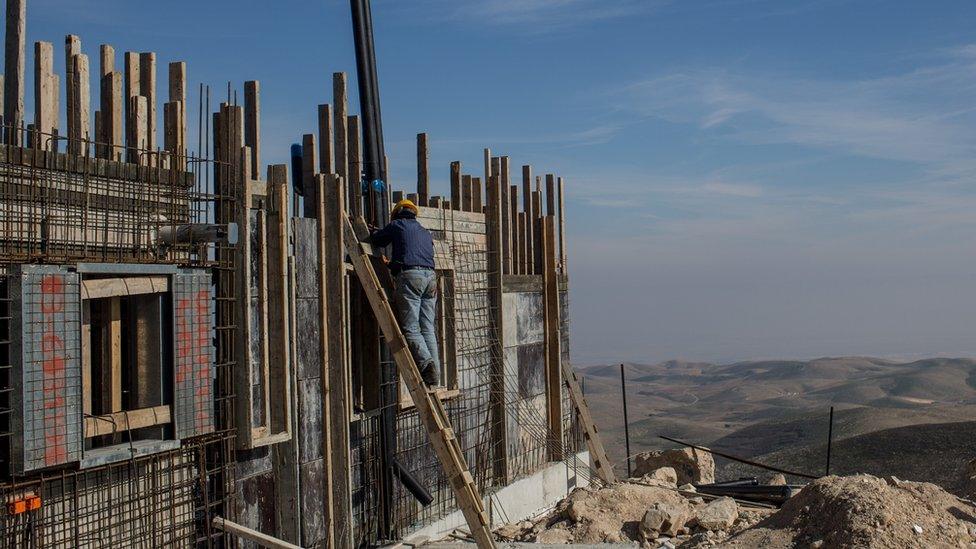
Israeli settlements have drawn widespread international condemnation
Israel's parliament has passed a controversial law retroactively legalising almost 4,000 settler homes built on privately-owned Palestinian land in the occupied West Bank.
Under the legislation, the Palestinian landowners will be given financial compensation or alternative land.
The Palestinian president called the law "an aggression against our people".
Israel's attorney-general has said it is unconstitutional and that he will not defend it in the Supreme Court.
The legislation's passage comes amid an escalation in settlement activity since the inauguration of Donald Trump as US president.
Emboldened by a new administration it sees as a more sympathetic, Israel's government has advanced plans for thousands of new settler homes.

What are settlements?
More than 600,000 Jews live in about 140 settlements built since Israel's 1967 occupation of the West Bank and East Jerusalem - land the Palestinians claim for a future state. The settlements are considered illegal under international law, though Israel disputes this.
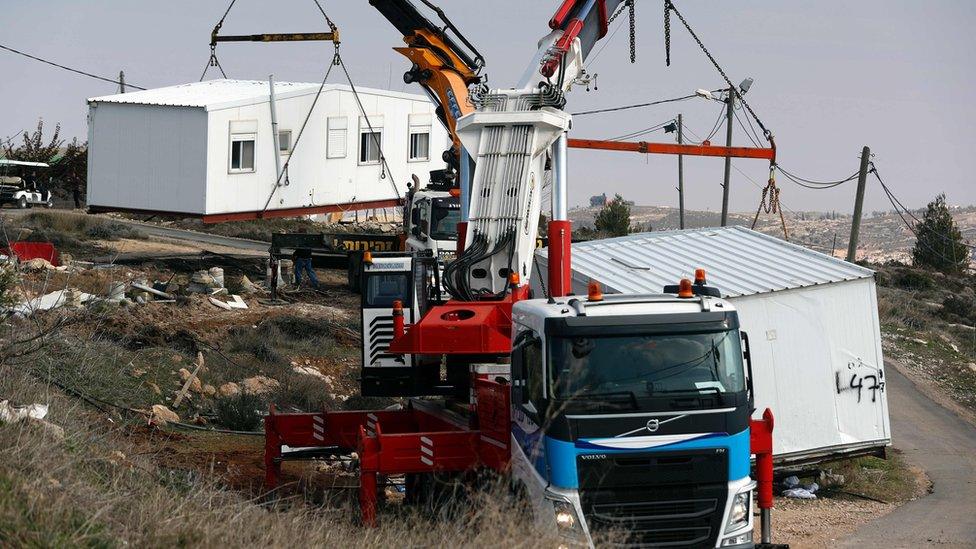
The legislation was passed after Israeli authorities evacuated the unauthorised Amona outpost
There are also 97 settler outposts, external - built without official authorisation from the Israeli government - across the West Bank, according to the Israeli anti-settlement watchdog Peace Now.
However, the largest, Amona, was evacuated by police last week after the Supreme Court ordered that it be dismantled because it was built on private Palestinian land.

What does the new law say?
The so-called "Regularisation Bill" was passed by 60 votes to 52 in the 120-member Knesset.
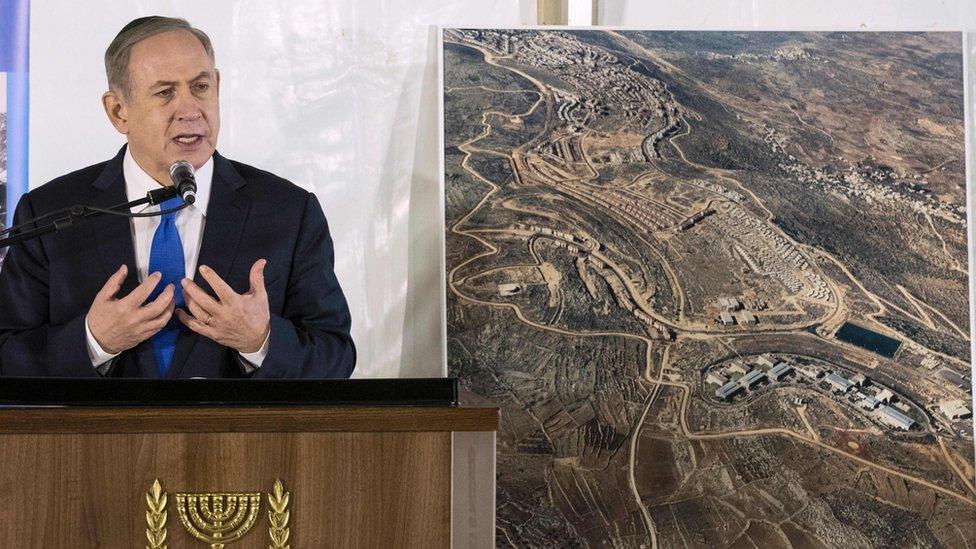
The law was backed by Israeli Prime Minister Benjamin Netanyahu's coalition
It says, external settlement construction in the West Bank that was carried out in good faith, without knowledge that the land was privately owned, can be recognised by the government if settlers show they received some kind of state support in establishing themselves at the site.
It allows the government to expropriate land for its own use if the Palestinian owners are unknown. If the owners are known, they will be compensated with money or an alternative plot.

What could the impact be?
Peace Now says, external this will allow for the retroactive legalisation of 3,921 homes in 72 settlements and 55 outposts built on approximately 818 hectares (2,020 acres) of private Palestinian land.
The outposts could become official settlements and would most likely be expanded, the watchdog adds.
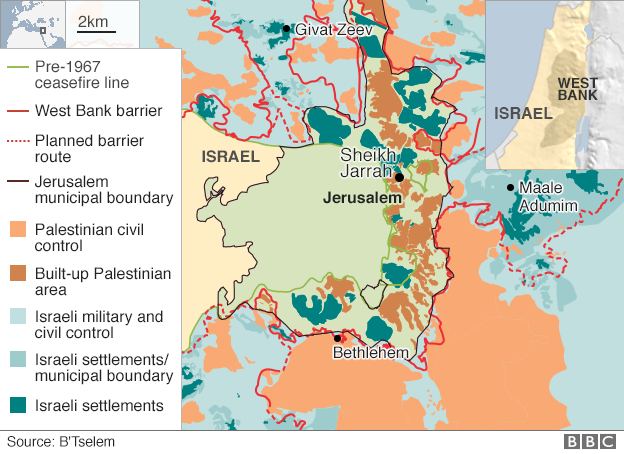
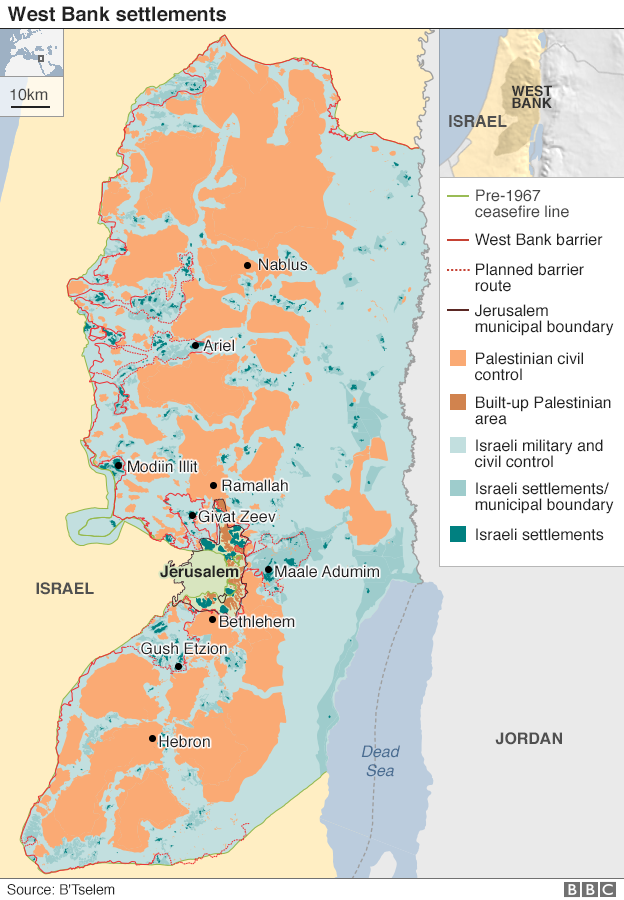
Administrative proceedings against homes at 16 outposts will be immediately frozen for 12 months, pending a decision on whether to expropriate the land.

What has been the reaction?
Prime Minister Benjamin Netanyahu, who was on a visit to the UK, missed the vote, but a minister from his Likud party said the law was a demonstration of "the connection between the Jewish people and its land". "This whole land is ours. All of it," Ofir Akuni said.
Opposition leader Yitzhak Herzog denounced the measure as "an acute danger to Israel" that could lead to prosecution at the International Criminal Court (ICC) at The Hague.
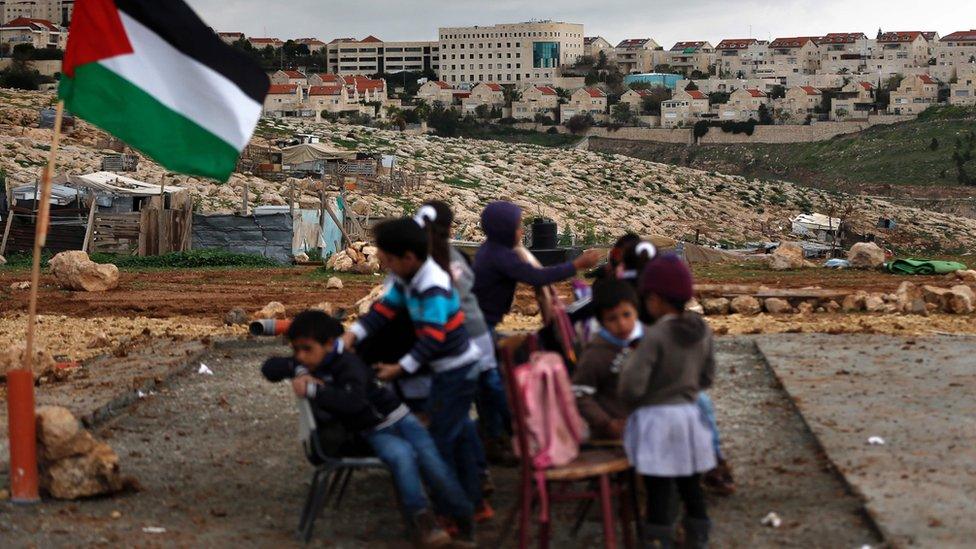
Palestinian officials denounced the law, saying it was legalised land theft
Palestinian officials said the law was an attempt to legalise land theft.
President Mahmoud Abbas described it as "an aggression against our people that we will be opposing in international organisations".
"What we want is peace... but what Israel does is to work toward one state based on apartheid," he told reporters in Paris after talks with French President Francois Hollande, who called on Israel's government to "reconsider this law".
UN Special Co-ordinator for the Middle East Peace Process Nickolay Mladenov warned, external the law would "have far reaching legal consequences for Israel and greatly diminish the prospects for Arab-Israeli peace".
The immediate response of the White House was to refer to a statement, external it issued last week, which said that while the construction of new settlements "might not be helpful", it did not regard settlements as an impediment to peace.
Officials later said the Trump administration would "withhold comment on the legislation until the relevant [Israeli] court ruling".

Could the law be struck down?
Peace Now says the law is almost certain to face a Supreme Court challenge.
Legal experts argue that the legislation is unconstitutional because it violates land ownership provisions in the Basic Laws of Israel.
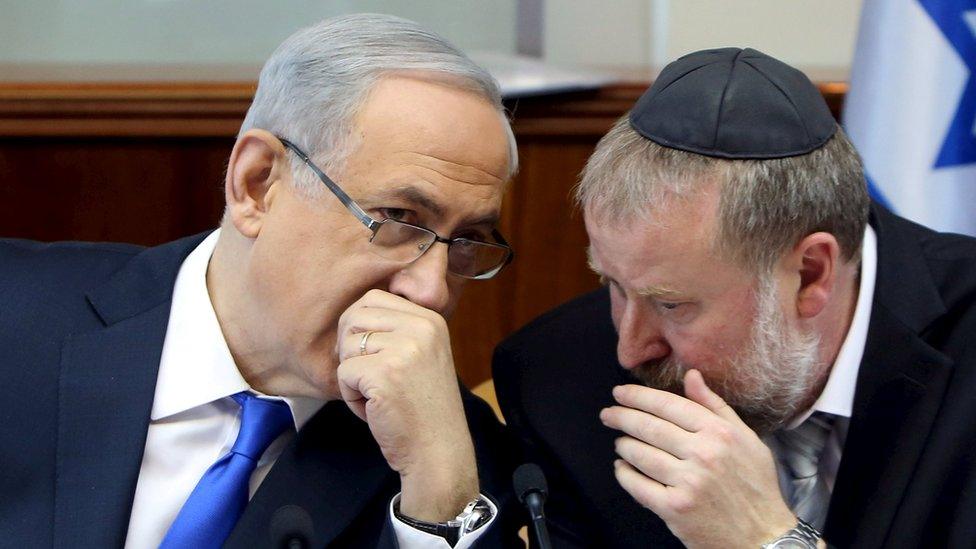
Attorney-General Avichai Mandelblit (R) warned before the vote that the law was unconstitutional
Attorney-General Avichai Mandelblit warned Mr Netanyahu before the vote that he was not prepared to defend it in court.
"The bill allows the expropriation of private property contrary to Israeli law, and in a manner that is consistent with Israel's obligations under international law," he warned, external in November.
Peace Now says, external the law is also undemocratic, because the Palestinians who will be affected do not have the right to vote in the Israeli parliamentary elections.
It adds that the Knesset (Israeli parliament) does not have legal authority to legislate in the West Bank, which is under Israeli military rule.